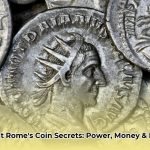Prepare to journey through the annals of warfare and delve into the minds of the greatest military strategists who ever lived. From ancient battlefields to modern conflicts, these masterminds didn’t just win battles; they redefined the very concept of warfare, leaving an indelible mark on history. This article aims to illuminate the strategic genius, tactical brilliance, and enduring legacy of the best strategist in history, offering a comprehensive look at the figures who mastered the art of war and continue to influence military thought today. We will explore the lives and campaigns of the most famous military strategists, dissecting their innovative approaches to achieve total dominance on the battlefield and beyond.
What Defines a Truly Great Military Strategist?
Ranking the greatest military strategists in history is a complex task, as their effectiveness depended on diverse factors like technological advancement, geopolitical landscapes, and cultural contexts. However, common threads emerge that define these exceptional leaders. A great military strategist possesses a unique blend of vision, adaptability, psychological acumen, and an unparalleled understanding of logistics. They are not merely tacticians who win individual skirmishes, but architects of long-term campaigns that shape empires and redraw maps.
Vision and Foresight: Crafting the Long Game
True strategists possess an uncanny ability to see beyond the immediate battlefield. They envision the entire theater of war, anticipating enemy movements, understanding political ramifications, and laying the groundwork for campaigns that could span years or even decades. Their plans are not just about winning a single battle, but about achieving a decisive strategic objective that fulfills a larger political or territorial aim. This foresight allows them to outmaneuver opponents before the first clash of arms.
Understanding the qualities that distinguish these figures is key to appreciating the impact of iconic military leaders, whose landmark battles, as detailed in various analyses, continue to shape modern strategic thought.
Adaptability and Innovation: Mastering the Unpredictable
No plan survives first contact with the enemy, as the adage goes. The best military strategists in history were masters of adaptation, able to pivot their strategies in response to unforeseen circumstances, changing intelligence, or new technologies. They were innovators, often introducing revolutionary tactics, weapon systems, or organizational structures that caught their enemies off guard and reset the paradigms of warfare.
Logistics and Resource Management: The Unsung Hero of Victory
Brilliance on the battlefield is moot without the means to sustain it. Famous military strategists understood that effective logistics—the supply of food, ammunition, and reinforcements—was as critical as any daring maneuver. Their ability to manage resources, maintain troop morale, and sustain extended campaigns across vast distances often decided the outcome of wars, proving that strategy begins long before a shot is fired.
Psychological Warfare and Deception: Winning Without Fighting
Many of the greatest military strategists adhered to Sun Tzu’s principle of winning without fighting. They employed sophisticated psychological operations, disinformation, and elaborate deceptions to demoralize enemies, sow discord, and create opportunities for decisive strikes. Understanding the human element – the fears, motivations, and weaknesses of both their own troops and the enemy – was a cornerstone of their strategic approach.
Enduring Legacy and Influence: Shaping Future Generations
The ultimate testament to a strategist’s greatness is their lasting impact. The best strategist in history often transcended their own era, with their writings, campaigns, and philosophies becoming foundational texts for military academies and leaders for centuries to come. Their lessons are studied, adapted, and reinterpreted, proving their universal applicability to the strategic challenges of any age.
The Greatest Military Strategists: A Pantheon of Masterminds
Here, we present a curated list of the greatest military strategists in history, whose genius fundamentally altered the course of human conflict and whose legacies continue to resonate today.
Sun Tzu: The Architect of Indirect Warfare
Often regarded as the first and perhaps the best strategist in history, Sun Tzu’s “The Art of War” (written around the 5th century BC) remains the most influential treatise on military strategy worldwide. Sun Tzu emphasized deception, espionage, psychological warfare, and the avoidance of direct conflict when possible. His philosophy posits that ultimate victory lies in subduing the enemy without fighting, or at least with minimal bloodshed, by understanding their strengths and weaknesses better than they do themselves. His insights on flexibility, knowing your enemy and yourself, and the importance of intelligence are timeless.
Alexander the Great: The Audacious Conqueror
Alexander III of Macedon (356–323 BC) was a military genius whose swift and daring campaigns carved out one of the largest empires of the ancient world. His strategic brilliance lay in his audacious use of combined arms (infantry, cavalry, and siege engines), his ability to adapt tactics on the fly, and his personal leadership that inspired extreme loyalty. Battles like Gaugamela showcased his innovative use of flanking maneuvers and feigned retreats to break superior numbers. Alexander’s lightning campaigns and decisive victories over the Persian Empire demonstrate a mastery of grand strategy and tactical execution.
Hannibal Barca: The Master of Annihilation
The Carthaginian general Hannibal (247–183 BC) is renowned for his strategic depth and tactical innovation, particularly during the Second Punic War. His daring march over the Alps with war elephants into Roman Italy was a logistical and strategic marvel. His masterpiece, the Battle of Cannae (216 BC), is studied to this day as a perfect example of a double envelopment, where he utterly annihilated a numerically superior Roman army. Hannibal’s genius lay in his ability to exploit enemy weaknesses, utilize terrain, and employ psychological warfare, cementing his place among the greatest military strategists.
Julius Caesar: Rome’s Unstoppable General
Gaius Julius Caesar (100–44 BC) was a Roman general and statesman whose campaigns extended Roman dominion and reshaped its political landscape. His strategic acumen was evident in his rapid marches, disciplined command, and ability to inspire his legions. Campaigns like the Gallic Wars and the Roman Civil War demonstrated his mastery of logistics, engineering (e.g., the siege of Alesia), and understanding troop psychology. Caesar consistently faced and defeated numerically superior forces through superior organization, audacious decision-making, and often, brutal efficiency, making him one of the most famous military strategists.
Genghis Khan: The Horseman of Unification
Temüjin, later known as Genghis Khan (c. 1162–1227), transformed scattered Mongol tribes into a unified, disciplined, and terrifying military force. His strategic genius lay in his understanding of scale, speed, and terror. He pioneered the use of highly mobile cavalry, sophisticated intelligence networks, and psychological warfare on an unprecedented scale. His campaigns against the Jin Dynasty, Khwarezmian Empire, and others demonstrated a grand strategy of encirclement, relentless pursuit, and the systematic dismantling of enemy command structures, making him a contender for the best strategist in history.
Subutai: Genghis Khan’s Strategic Brain
While Genghis Khan was the visionary, Subutai (c. 1175–1248) was arguably the operational mastermind behind many of the Mongol Empire’s most spectacular conquests. Often called “the greatest general of whom the West has never heard,” Subutai orchestrated campaigns across vast distances with incredible precision. His strategies involved multi-pronged invasions, coordinated movements over thousands of miles, and advanced reconnaissance. The Battle of Kalka River (1223) and the invasion of Europe (1241-1242) showcase his ability to integrate intelligence, logistics, and devastating tactical execution.
Saladin: The Unifier and Defensive Master
Salah ad-Din Yusuf ibn Ayyub (1137–1193), known as Saladin, was the first Sultan of Egypt and Syria and a central figure of the Third Crusade. His strategic genius was not just in conquest but in unification and defensive warfare. He masterfully leveraged diplomacy, propaganda, and religious fervor to unite the Muslim world against the Crusader states. His campaigns, such as the Battle of Hattin (1187) and the subsequent recapture of Jerusalem, showcased his ability to control terrain, conduct Fabian tactics, and strike decisively, earning him immense respect even from his enemies.
Frederick the Great: Prussia’s Enlightened Warrior King
Frederick II of Prussia (1712–1786) transformed a minor European power into a formidable military force. His strategic brilliance during the Silesian Wars and the Seven Years’ War lay in his innovative use of maneuver, discipline, and the “oblique order” tactic. Frederick’s strategy favored rapid movement and concentrated attacks on a single flank, often against larger, entrenched armies. His ability to maintain a professional army, despite limited resources and encirclement by powerful adversaries, solidified his reputation as one of the greatest military strategists in history.
Napoleon Bonaparte: The Emperor of Maneuver
Napoleon I (1769–1821) revolutionized warfare with his aggressive tactics, rapid troop movements, and the corps system, allowing for independent operation and rapid concentration of forces. He was a master of the “Battle of Annihilation” and the “maneuver sur les derrières” (maneuver on the rear), aiming to cut off enemy supply lines and force decisive engagements. Battles like Austerlitz (1805) exemplify his strategic genius in using terrain, deception, and precise timing to defeat much larger coalitions. Many consider him the definitive best military strategist in history for his profound impact.
Carl von Clausewitz: The Philosopher of War
While not a field commander of the same stature as others on this list, Carl von Clausewitz (1780–1831) was a Prussian general and military theorist whose unfinished treatise “On War” is arguably the most important work on military strategy ever written. Clausewitz shifted the understanding of war from a purely military act to a complex political instrument. His concepts of “fog of war,” “friction,” and the idea that “war is merely the continuation of politics by other means” provided a theoretical framework for understanding strategy that remains indispensable for military and political leaders today.
Erwin Rommel: The Desert Fox’s Blitz
Erwin Rommel (1891–1944) was a German field marshal known for his dynamic leadership during World War II, particularly in the North African Campaign. His strategic brilliance, earning him the moniker “Desert Fox,” lay in his aggressive use of combined arms (tanks, infantry, and air support), rapid maneuver warfare, and deep understanding of terrain. Rommel’s ability to operate effectively with limited resources, surprise his opponents, and maintain initiative showcased a remarkable strategic mind in a modern context.
Zhuge Liang: The Master of Wei-Qi Strategy
Zhuge Liang (181–234 AD) was a chancellor and regent of the Shu Han kingdom during the Three Kingdoms period of China. He is revered as a brilliant military strategist and tactician, often depicted holding a feather fan. His strategies were deeply rooted in Taoist philosophy and an understanding of human psychology, often employing elaborate ruses, psychological warfare, and an almost prescient ability to predict enemy movements. Tales of his “empty fort strategy” and “borrowing the east wind” illustrate his unconventional brilliance and cunning, making him one of Asia’s most famous military strategists.
Khalid ibn al-Walid: The Sword of Allah
Khalid ibn al-Walid (c. 585–642 AD) was one of the most successful military commanders in history, leading the early Muslim forces to victory in hundreds of battles. His strategic genius lay in rapid cavalry maneuvers, innovative use of terrain, and an unparalleled ability to adapt to diverse battlefield conditions, from the Arabian Desert to the plains of Syria. His campaigns against the Byzantine and Sasanian Empires established the foundations of the Islamic Caliphate, showcasing a consistent record of strategic foresight and tactical mastery.
George S. Patton: The Aggressive Innovator
General George S. Patton Jr. (1885–1945) was a highly decorated American general during World War II, famous for his aggressive leadership and lightning-fast armored advances. Patton’s strategic philosophy emphasized speed, initiative, and relentless pursuit of the enemy. He understood the psychological impact of constant pressure and surprise. His Third Army’s swift relief of Bastogne during the Battle of the Bulge is a prime example of his audacity and logistical prowess, solidifying his place among the greatest military strategists.
Vo Nguyen Giap: The Architect of Asymmetrical Warfare
Vo Nguyen Giap (1911–2013) was the general of the Vietnam People’s Army and a master of irregular and asymmetrical warfare. His strategic brilliance lay in combining guerrilla tactics with conventional military operations, leveraging the resolve of his people against technologically superior forces. His victory at Dien Bien Phu (1954) against the French and his sustained efforts during the Vietnam War (American War) demonstrated an incredible long-term strategic vision, patience, and an understanding of political will as a weapon, making him a unique entry among the best military strategists in history.
Beyond the Battlefield: The Enduring Lessons of History’s Best Strategists

The lessons gleaned from these greatest military strategists are not confined to military history museums or war colleges. Their principles of foresight, adaptability, resource allocation, and psychological understanding are universally applicable, offering invaluable insights for success in various competitive fields.
Strategy in Modern Business and Leadership
In the cutthroat world of modern business, the strategic principles of Sun Tzu or Napoleon are often invoked. Understanding market dynamics, anticipating competitor moves, deploying resources effectively, and adapting to technological shifts are direct echoes of military strategy. Leaders who grasp these timeless lessons can navigate complex challenges, innovate through disruption, and achieve their objectives with decisive action, much like the famous military strategists of old.
The Evolving Art of Warfare
While the weapons have changed from swords and arrows to drones and cyber warfare, the core principles of strategy remain remarkably consistent. The need to understand the enemy, secure resources, adapt to new technologies, and maintain morale are constant. Modern military strategists continue to study these historical figures, seeking to apply their wisdom to contemporary conflicts, from geopolitical chess games to counter-insurgency operations, proving that the art of war is perpetually evolving yet fundamentally rooted in the past.
Conclusion

The greatest military strategists were more than just commanders; they were visionary leaders, profound thinkers, and audacious innovators who bent the arc of history to their will. From the timeless wisdom of Sun Tzu to the audacious campaigns of Alexander the Great and Napoleon Bonaparte, their stories offer a rich tapestry of human ingenuity and resilience. Studying these best strategists in history provides not just a historical account, but a practical guide to strategic thinking that transcends the battlefield, offering lessons on leadership, problem-solving, and achieving objectives in any competitive environment. Their enduring legacies prove that strategic mastery is a timeless pursuit, continually shaping our world.
FAQ
Q1: Who is generally considered the greatest military strategist of all time?
A1: While subjective, Sun Tzu, author of “The Art of War,” is often cited as the most influential and greatest military strategist for his timeless principles of indirect warfare, deception, and the importance of knowing oneself and one’s enemy. Napoleon Bonaparte is also frequently named for his revolutionary impact on battlefield tactics and grand strategy.
Q2: What are the key qualities of a great military strategist?
A2: A great military strategist possesses vision and foresight, enabling them to plan long-term campaigns; adaptability and innovation to respond to changing circumstances; mastery of logistics and resource management; and an understanding of psychological warfare and deception. Their strategies also leave an enduring legacy that influences future military thought.
Q3: How do strategists differ from tacticians?
A3: A strategist focuses on the big picture – the overall objectives of a war or campaign, including political, economic, and long-term goals. A tactician, by contrast, focuses on the execution of plans in specific battles or engagements, dealing with troop movements, terrain utilization, and immediate battlefield maneuvers. The best military strategists in history often combined both roles effectively.
Q4: Which ancient figures are considered among the best military strategists?
A4: Many ancient figures are recognized as greatest military strategists in history, including Sun Tzu (China), Alexander the Great (Macedon), Hannibal Barca (Carthage), Julius Caesar (Rome), and Genghis Khan (Mongol Empire). Their innovative approaches laid foundational principles for warfare.
Q5: How have the principles of military strategy evolved over time?
A5: While the core principles of strategy (e.g., objectives, resources, intelligence) remain constant, their application has evolved with technology (e.g., gunpowder, airpower, cyber warfare), changes in political landscapes, and the rise of new forms of conflict (e.g., asymmetrical warfare). However, modern strategists still draw heavily on the insights of past famous military strategists.
Q6: Can military strategy be applied to other fields, like business?
A6: Absolutely. The foundational principles of military strategy, such as setting clear objectives, understanding the competitive landscape, allocating resources efficiently, anticipating competitor moves, and adapting to change, are highly applicable and widely used in business, politics, and other competitive environments.










